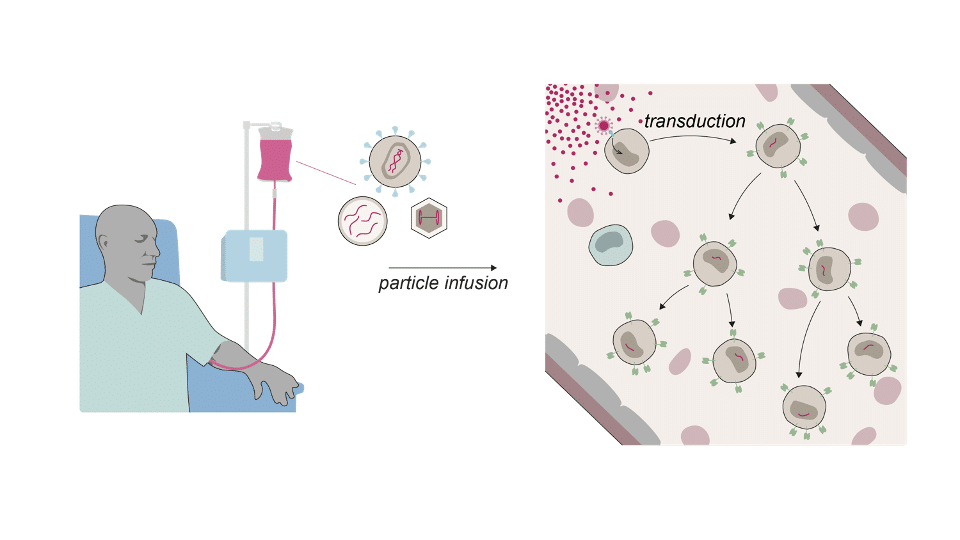Aims
The newly established immuno-oncology platform will use the innovative cell type-specific gene transfer technologies available at FCI to develop new immunotherapeutic concepts. These include the genetic modification of T lymphocytes or natural killer cells (NKs) with chimeric antigen receptors (CARs) as well as the precise transfer of immunomodulatory agents into tumor tissue.
The necessary vector systems have been and are being developed within the FCI by the partner PEI. World-leading in the generation of so-called receptor-targeted vectors, CD4- and CD8-targeted lentiviral vectors have been generated, which can introduce therapeutic genes highly selectively with more than 99% precision into the respective subtypes of T-lymphocytes. This precise gene transfer not only works ex vivo in cultured cells, but also in vivo, in mouse models, the general feasibility of the concept could be demonstrated. Thus, proof-of-concept for in vivo generation of CAR-T cells was achieved using such vectors. The application of these vectors to new therapeutic strategies as well as the transfer of the vector engineering concept to AAV vectors and lipid nanoparticles are the focus of ongoing activities. This also concerns the analysis of interactions between tumor cells and immune cells, which are often crucial for the successful treatment of cancer. These will be investigated at all levels from transcription to proteome and up to cell-cell interactions and will be presented as an overall picture. In addition, the spatial interaction between immune and tumor cells will be in the focus.
